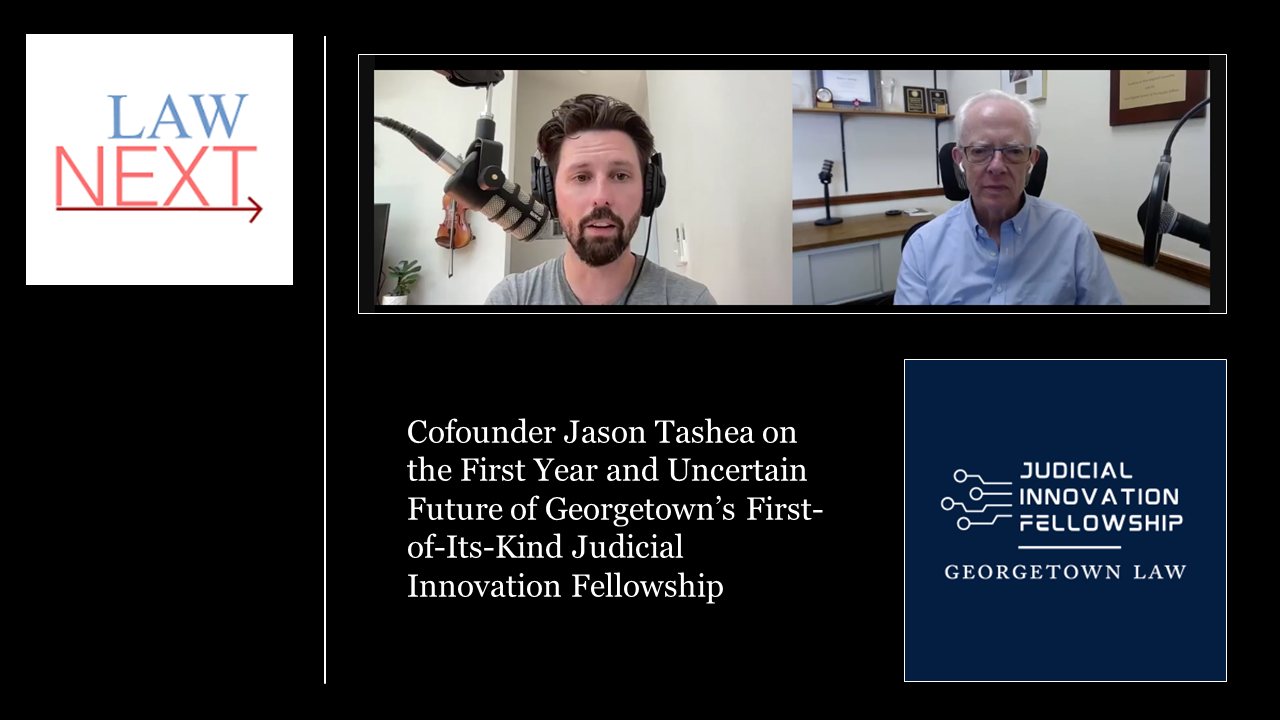Eighteen months ago, the first-of-its-kind Judicial Innovation Fellowship launched with the mission of embedding experienced technologists and designers within state, local, and tribal courts to develop technology-based solutions to improve the public’s access to justice. Housed within the Institute for Technology Law & Policy at Georgetown University Law Center, the program was designed to be a catalyst for innovation to enable courts to better serve the legal needs of the public.
In August, the program will wrap up its inaugural cohort, which placed three fellows in courts in Kansas, Tennessee and Utah. But even though those three fellowships were successful, our guest today, Jason Tashea, the program’s founding director and cofounder, says its future is uncertain because its continued funding is uncertain. “These programs are expensive, they are hard to fundraise for,” he says.
In today’s episode, Tashea, an entrepreneur, educator, and award-winning journalist, joins host Bob Ambrogi to discuss the need for and genesis of the program, the fellowships it supported this year, and his assessment of the program’s success. He also shares his thoughts more broadly on the need for innovation in the courts to address the gap in access to justice.
Thank You To Our Sponsors
This episode of LawNext is generously made possible by our sponsors. We appreciate their support and hope you will check them out.
-
Paradigm, home to the practice management platforms PracticePanther, Bill4Time, MerusCase and LollyLaw; the e-payments platform Headnote; and the legal accounting software TrustBooks.
If you enjoy listening to LawNext, please leave us a review wherever you listen to podcasts.
 Robert Ambrogi Blog
Robert Ambrogi Blog